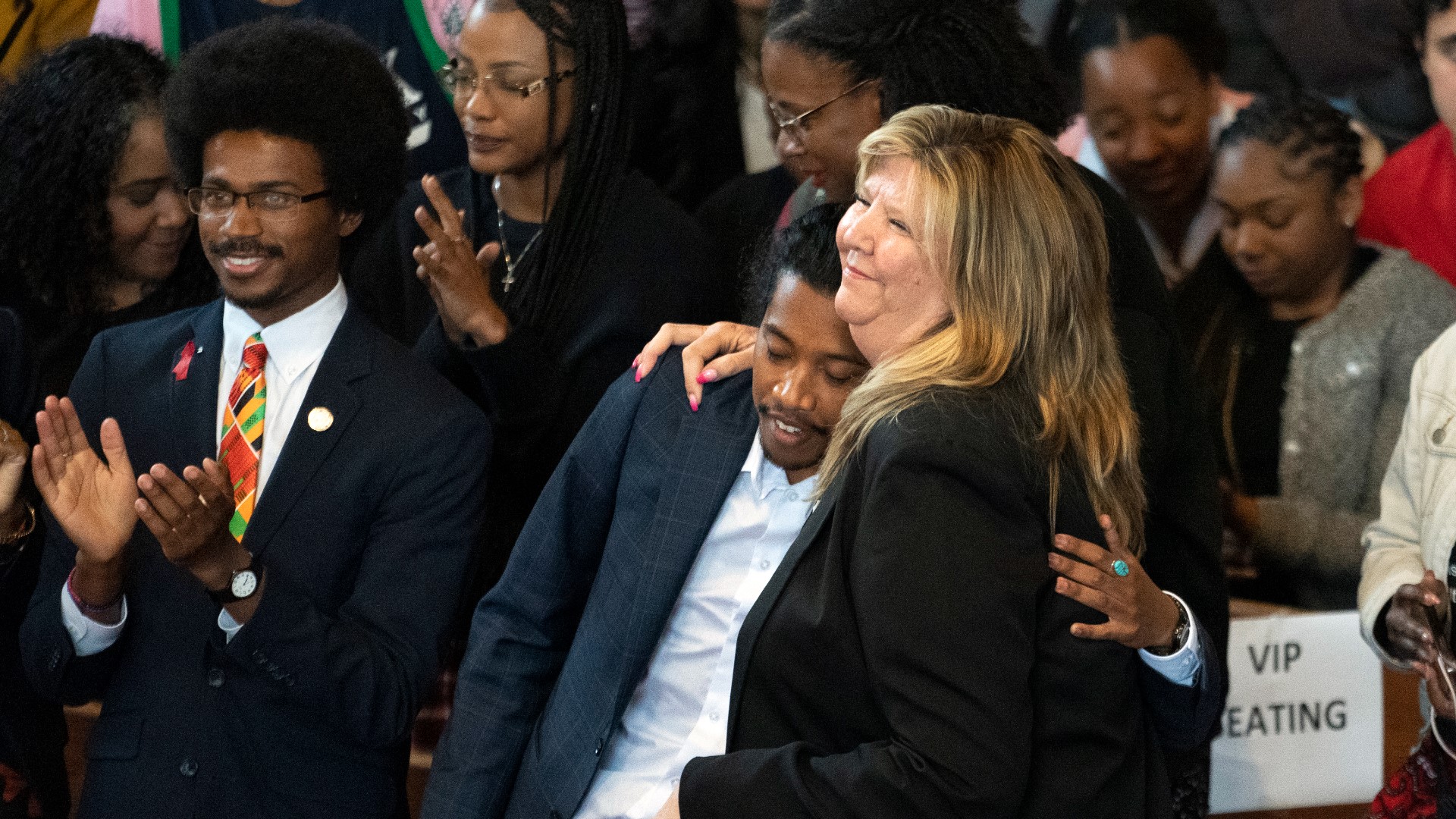NASHVILLE, Tenn. — Both expelled Tennessee lawmakers returned to their seats in the state house this week.
Rep. Justin Jones (D-Nashville) and Rep. Justin Pearson (D-Memphis), who are Black, were ousted by Republicans last week for carrying a gun violence protest onto the House floor.
Rep. Gloria Johnson (D-Knoxville), who is white, survived expulsion by one vote. The "Tennessee Three" captured the attention of national media, including NBC's Meet the Press.
We spoke with moderator Chuck Todd about whether that spotlight will change Tennessee's political future. Meet the Press airs Sundays on WBIR at 10 a.m.
WBIR: Are the state politics we're seeing play out here in Tennessee unique or more a symbol of what we've been seeing across the country?
Chuck Todd: It's actually more symbolized of what you see, particularly in states that are more dominated by one party — a solidly blue state or a solidly red state.
You see similar circumstances with the legislatures being supermajorities. It's more acute in the red states, because the gerrymander, the political divide to create the supermajority, also has a divide along racial lines.
You don't have that as much in the blue states' supermajorities that you see, but you do see them in a lot of these red states, particularly the southern states.
It's a two-fold situation. You get the gerrymander. It gives one-party control, and then when they get control of the institution, they sort of change the rules to make sure the majority rules, whether it's cutting off debate, cutting short debate, changing the rules, to "streamline things."
And again, we did an analysis of this today, these more partisan legislatures, whether they're hard blue or hard red, are the ones that end up curtailing minority rights. And in this case, I'm talking about a minority political party.
WBIR: You mentioned those supermajorities. What is the impact of having all of those state legislatures super majorities on democracy?
Chuck Todd: Well, it's a pretty undemocratic situation as we've learned. I mean, take Tennessee. I believe it's about half of the 75 statehouse members didn't even have an opponent of any stripe.
Only four Republicans in the current Tennessee legislature won with less than 60% of the vote. So there's really no democracy.
It's every 10 years. It's in the primary and it's whoever draws the lines. And then you have the situation where particularly take Nashville, where when they drew the congressional lines, instead of keeping the community together like Nashville, they did what's called in the redistricting community "cracking and packing."
So they crack the community — in this case, Nashville — and create sort of like a hub and spoke, splinter the community. And in this case, they wanted to create more Republican districts and get rid of a potential Democratic district.
And then when they have to draw a Democratic district, they try to draw in the statehouse, we've seen some African American districts that are from different communities.
So they don't keep the cohesive community together. That's what you end up doing. And it's sort of... the old saying — "Power corrupts, and absolute power corrupts absolutely." That's what you end up getting.
WBIR: What's your measuring stick proving whether the expulsion votes marked a significant turning point for Tennessee politics? Or if those events just become another attention grabber without much impact on elections and beyond?
Chuck Todd: It's a great question. I have a feeling it might be more of a ripple, but we'll see because everything has been restored. There's not a near-term moment where you get a voter test in Tennessee to see if there's some sort of backlash to this moment.
I think it is notable that the governor himself ended up —while not getting involved in the decision to expel the lawmakers whether that was good or bad — the fact that he called the legislature to pass more gun laws, essentially taking the side of the once-ousted lawmakers who wanted the legislature to consider more gun proposals.
He ended up proposing that so I guess that's one way to take a measure of this situation.
Editor's Note: Answers have been edited for clarity and length.

